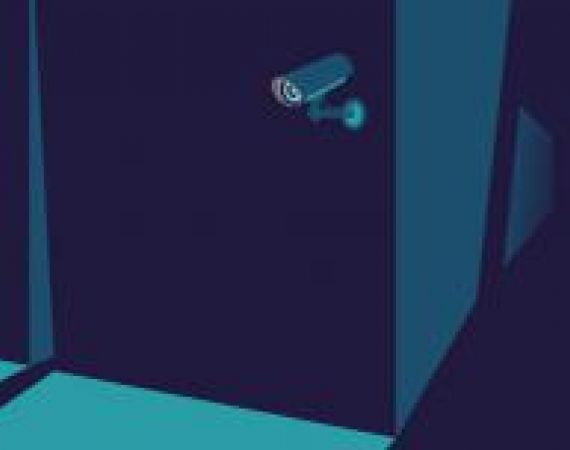Disco Bandits
How can people resist public surveillance? Arjan Dhupia's Disco Bandits is a story-driven locative game that addresses public surveillance in our daily lives.

A SuperVision camera
How can people resist public surveillance?
Arjan Dhupia's Disco Bandits is a story-driven locative game that addresses public surveillance in our daily lives. It is played on smartphones using an HTML5 framework. Players explore Plastic City, a parallel world hidden in the streets of London. Using a unique story distribution model, the site-specific game world revolves around the player's daily travel routine. London tube stations, surveillance cameras and dance clubs become venues in a compelling story of surveillance and music culture. Disco Bandits provides a single-player experience that, unlike most locative games, embraces the histories and contexts of the city.
In Plastic City, you won't find lawyers or judges. Law and order is maintained by SuperVision, the city's new computer system. With access to all public CCTVs, SuperVision autonomously analyses video footage of street life to execute new laws – no humans needed. Its latest law amendment comes a shock to all street kids: dancing is forbidden as of now! In the dead angle of SuperVision's camera eyes, resistance flares up against the dance prohibition. A group of young music lovers seeks to reveal the circumstances behind the new law.
The project is inspired by Michael Naimark's essay "How To Zap a Camera". Here, Naimark presents an operative, yet unfeasible invention called the "camera zapper" as a people's tool for counter-surveillance. In the fictional world of Disco Bandits, Naimark's idea is granted effectiveness. Peripatetic players use it to resist SuperVision's surveillance in Plastic City. Notably, the geographical locations of SuperVision cameras in the game coincide with those of real-world London CCTVs. This way, surveillance in Plastic City becomes equivalent to the surveillance we experience every day. Disco Bandits might raise an increased awareness in players about the density of supervision in their own neighborhoods and the politics of surveillance and present-day society.
